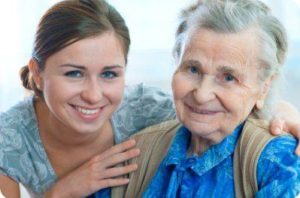Confusion over aged care service for emerging communities – report
 Victoria’s ageing migrants have difficulty in accessing information on aged care services, according to new research.
Victoria’s ageing migrants have difficulty in accessing information on aged care services, according to new research.
Older people from new and emerging communities, such as those from Sudan and Myanmar, often struggle to find options for aged care, according to the study by National Seniors Research and Australian Unity Home Care Services.
The research points out the need for better digital literacy training to access information on aged care services.
The government also needs to provide quicker access to interpreters and intermediaries to interact with members of the community, some of whom have experienced refugee camps, the study says.
Based on a focus group of 20 people representing Victorian communities from the Horn of Africa, Europe, the Philippines, Central and South America and the Thai-Burma border, the research also identified a need for more support for ageing in place with additional transport services and community centres.
The report, titled ‘Dealing with Diversity’ found language and cultural barriers, lack of support for the primarily female carers, problems accessing home services and isolation were common threads to emerge from the research.
National Seniors CEO and research director Professor John McCallum Professor McCallum said previous research had focused on the issues faced by ageing migrants from mainly European and Asian countries.
“Like previous migrants, recent migrants also face language and cultural barriers that affect their ability to access the aged care sector and this is often worse if they’ve spent time in refugee camps,” he said in a statement.
“It can also mean people endure even longer delays than others because they have to wait for interpreting services to be available,” Prof McCallum said.
Cultural issues for emerging communities included the importance of ageing in place and dying at home and resistance and taboos around placing an elderly family member in aged care.
“The difficulties of caring for a family member at home can be immense for women, because they bear most of the responsibility,” Professor McCallum said.
“This is especially evident if that person has dementia, and isolation and the anxiety of leaving them at home alone are big problems.
“Even if the family member is prepared to go into residential care, there can be major problems adjusting to the language, culture and even the food if it’s not what they are used to eating in their own community,” he said.
The study’s report said a similar study of new immigrants published 28 years ago had found the same problems including language and cultural barriers, burdens on women and access to services in the home. However a new problem was now the need for digital literacy to access benefits and services.
Digital issues included the cost of digital technology and being able to navigate English websites.
“Many participants advocated for grassroots, bottom-up solutions to the issues experienced in their communities, and some were already actively involved in supporting their own people, as well as CALD people generally,” the report said.
“These community leaders are willing to support their elderly with aged care access, but they need more information and resources to do so,” it said.
Victoria’s largest new and emerging communities include: Filipinos 38,000; Salvadorans 3,124; Ethiopian 11,792; South Sudanese 7,699: and. Karen 3000.
Laurie Nowell
AMES Australia Senior Journalist












